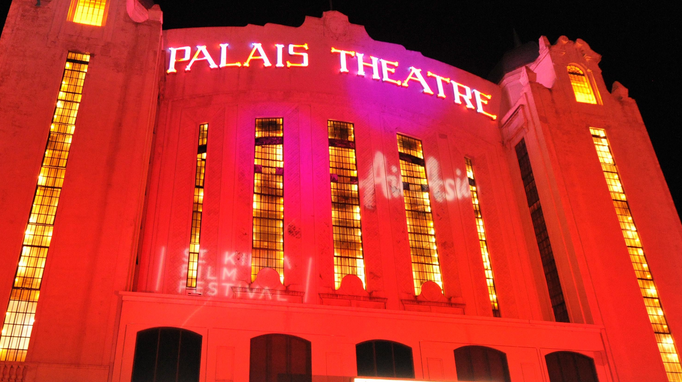Some highlights from SKFF15.
A good documentary is less a formal ‘document’ of reality, and more an interrogation or invigoration of that reality. A good documentary finds the extraordinary where you least expect it, and can make even what the documentary subject may think of as a humble story seem interesting or fascinating thing in the world to many others. The variety of documentaries on display at the St. Kilda Film Festival was a testament to the emerging talent, and showed there are plenty of stories out there in the world.
The Last Mirror Maker (dir. Sean Meltzer)
This quirky film was a unique look at family traditions and their development and change through each new generation. The film follows Mellissa Varga, a fifth generation ‘silverer’, who learnt the craft of hand-making mirrors from her father. They are, as the title suggests, the last people hand-making mirrors in Australia. With people ordering from overseas, the craft will soon become lost. There is a focus here on the artistry of hand-made mirrors, the uniqueness and slight imperfections that makes the mirrors special. The relationship between Melissa and her Father is touching in its eccentricity, and the retro feel to the film makes for a fun viewing experience.
Fecal Matters (dir. Paul Gallasch)
The title belies the seriousness of the subject matter. With sometimes confronting footage (if like me you’re a little squeamish about endoscopy footage), this film explores the surprising medical benefits and (positive) health implications that come from the bacteria present in our feces. The information was a little dense at terms, and while not technically perfect, the use of stock and found footage to help explain the medical jargon – a visual metaphor – was a clever way of keeping the film engaging; it could have easily become a talking heads scenario. I am looking forward to hearing more about possibly medical breakthroughs that were hinted at in this doco.
Something to Crow About (dir. Sebastian Broadbent)
A look at the little seen side of the Latrobe Valley coal miners; when the Strzelecki Stingbusters got together one night in the local pub to play a bit of music, the fourteen piece string band had no idea the effect they’d have on the local community. Optimism pervades this documentary – not only were the group able to pull together to raise funds and organize benefits for the community after the devastating 2009 bushfires. Even more affecting is the questioning of the toxicity of so-called Australian masculinity; some of the men openly admit that, as tough ‘blokes’, they often feel that they aren’t supposed to talk about their emotions or what they’re feeling, and that playing music with the group has become like a ‘self-help’ group for them.
A Face in the Crowd (dir. Vanessa Macedo)
Is it wrong to be fascinated with WWII Nazi memorabilia, and to want to portray them in military history reenactments? This film is non-judgmental, but it raises some interesting, and perhaps troubling, questions. The lonely nineteen year old at the centre of this story openly admits that his fascination is controversial and may seem strange to many, but that he has no desire to become a Nazi himself and doesn’t agree with their ideals. He just finds it all very fascinating. Deliberately anti-social in school to ‘avoid negativity’, he finds solace in re-enactment groups, and is careful to avoid becoming the person he portrays. But he sometimes wonders what it would be like to fit in, and be a face in the crowd….
Central Texas Barbecue (dir. Matthew Salleh)
You may have thought Australian barbecues were serious business, but then you would never have known about barbecues in Texas. BBQ culture in Texas is more than just a way to bring family together, although that is a huge part of it; for some people, barbecues are almost a religious, spiritual thing. It is a way of life. Shot in rich, warm tones, the film explores what barbecue means to different people, touching on subjects such as religion, anti-racism, and community. For Brian, a war veteran, barbecue symbolizes the values he prizes and learnt during his time served – honesty, fairness, and patience. Barbecue, we learn, is the embodiment of Texas and Texan culture. Mouthwatering, and probably not for vegetarians!
King of the Forest (dir. Nicole Precel)
73-year-old Noddy has been living in an Australian forest for nearly fifteen years. He is remarkably well set up for being so remote and cut off from the rest of the world. Only going into town once every few weeks, as he needs supplies, he has a laptop with Internet access, and multiple dwellings he has built himself. He’s even on Facebook and a dating site. Although he first appears as only eccentric, we soon learn that Noddy has lived a hard life, suffering from domestic violence, mental health problems and homelessness. Though he loves his home now, he still suffers from loneliness, and that in itself is heartbreaking. Noddy’s perspective on life is unique, and it feels like a privilege to hear his view on the world.
Melma (dir. Clayton Jacobson)
Melma was perhaps the most vivid documentary of the night. A portrait of an artist, Melma Hamersfield, and how she came to be the founder of the jewellery and accessory brand Metalicus. The construction of the timeline of her life is meticulous, and even takes on a slightly performative aspect as Melma herself relates her memories to us. As the ‘story of a life’ it’s pretty straightforward, but the film is made with a certain reverence, and the underlying message seems to be that artists will always remain artists.
For more on Events, click here. If you’re digging ReelGood, sign up to our mailing list for exclusive content, early reviews and chances to win big!
